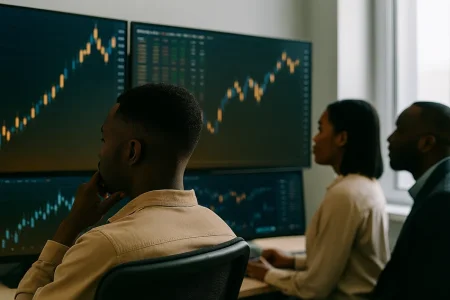
The HK50, also called the HS50 or the Hang Seng, lists Hong Kong's 50 largest companies by market cap. Some of the most successful Chinese companies are listed on the index, including:
- Alibaba
- Bank of China
- PetroChina
- China Petroleum
- Chemical corporation
- BOC Hong Kong
- Ping An Insurance
- Bank Of China HK
- CITIC
Understanding the HS50
The HK50/HS50/Hang Seng Index (HSI), whatever you want to call it, is the 50 largest companies listed on Hong Kong's Stock Exchange (SEHK). It constantly tracks the performance of companies that, combined, contribute to almost 60% of the stock exchange's market cap. Like most global stock markets, investors look to the HS50 as an indicator of Hong Kong's and China's economic health, as the index lists companies from both countries.Investors increasingly turn to Hong Kong, being the highly globalized and free-market economy nation that it is, but external factors primarily drive swings. Interestingly, China and the US influence 70% of the price fluctuations in Hong Kong’s economy. If you follow the Hong Kong 50 index on platforms like Exness, you'll almost always see fluctuations after announcements from the US or Chinese economies.
Stock Market Links Between the HS50 and Africa
The stock market links between the HK50 and Africa are interesting. Hong Kong's market stocks often spill into African markets. Research proves significant returns and volatility links, particularly between the Hang Seng and the Johannesburg Stock Exchange (JSE). And with that, global risk sentiment often moves in tandem.So, naturally, African traders will watch Asian markets. For example, although it is an older example, during China's 2023 stimulus rallies, the JSE and other African markets moved with the HK50. Yes, it had less volatile movements, but it was still reactive.
African equities are also heavily China-exposed. Most of the JSE performance comes from exposure to Chinese markets. Data shows this is mainly through resources such as metals, oil, and technology stocks.
ETFs are the more recent additions, creating links between the two markets. One example is the Sygnia iTris New China Sectors ETF that launched on the JSE in 2022, giving South Africans direct exposure to Chinese and Hong Kong consumer and service stocks. It's also common for Nairobi, Lagos, and Johannesburg investors to utilise platforms like Exness to trade Asian ETFs and derivatives through global brokers or social trading strategies.
Trade and Investment Data
Africa's trade with Asia is massive and expanding. Imports from China across Africa's 54 countries, for example, increased 57% from 2020 to 2024, equating to $138 billion from import trade in 2024. Africa's exports to China already increased 62% across the same period, going from $50 billion to $81 billion.Admittedly, Hong Kong is a smaller trading partner, but the HK50 is for Hong Kong and Chinese companies. The primary links to Hong Kong are through re-exports and finance. In terms of commodity links, over 1/4 of African imports come from China, and African exports to China are mostly commodities. With that, when the HK50 rises based on Chinese growth news or expectations, African commodity markets follow.
The investment channels are also opening up. China–Africa Development Fund—with headquarters in China and Hong Kong—has contributed more than $800 million to African projects. And the ETFs we mentioned earlier are another example.
Geopolitical Links
The data shows China has become Africa's top partner. In 2023, bilateral trade reached a new record of $282.1 billion.Beijing in particular has used trade instruments such as FOCAC and the Belt and Road to strengthen the ties over the years, with China planning to invest $9.9 billion more into African projects over 2024–26. And, again, in 2024, China extended 100% tariff-free access for African exports to all 54 African nations.
These new plans and policies show how the financial links between the two areas are growing stronger and why African traders would want to track Asian markets.
The Belt and Road Infrastructure (BRI) is the most promising. It's the most direct tie between the two countries. With that, Chinese companies have either built or upgraded 10,000 km of railways, 100,000 km of roads, 100 ports, and 66,000 km of power lines across Africa. And that's not even the end of it; there are an additional 30 major BRI plans for the future. For traders, this development signals Asia's demand growth, particularly for African minerals and new rail-linked mines.
And it's not only China. Asian development banks ADB and AIIB, and trade pacts, such as the ASEAN–Africa dialogues, create a channel for capital investment.
Hong Kong—being a free-market port—actively shows interest in Africa. One example is InvestHK’s “Africa Day 2025,” which networks African companies with Hong Kong services.
These diplomatic and trade outreaches always increase co-movement between the stock markets.
Economic Drivers
Everything we've discussed so far is an economic driver, especially the HK50 being heavily weighted in Chinese technology and finance firms. For example, the JSE‐listed China/Hong Kong ETF holds about 10.2% of Tencent, and Alibaba has 7.9%. Chinese tech optimism also increased 15% year-to-date because of homegrown AI technology.African traders can monitor these signals for Chinese demand for steady HK50 gains. The signals for commodity demand always benefit African exporters.
One of the largest economic drivers to influence the HK50 is always China’s monetary policies and stimulus. In February 2025, for example, China’s latest stimulus package drove a +13.6% increase in HK50. Beijing’s backing of key industries such as technology and consumer products, along with its steady central bank rate, has also kept investor confidence high.
African investors should know that Chinese policy can flood global markets with liquidity and boost commodity prices.
African traders are always closely watching Asian markets, and when you understand the link between the two countries, it's easy to see why there's such an interest. Asia has some of the biggest global economies, so making investments based on the movements of the HK50 is exciting for traders.



